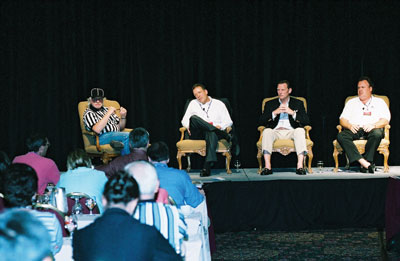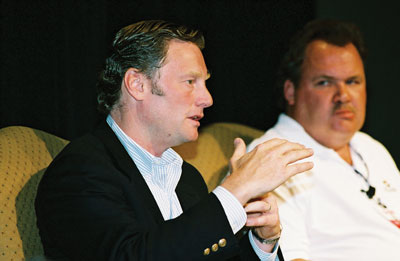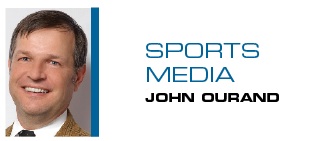It was 2003 when
ESPN’s
Sean Bratches strode on stage — wearing loafers and no socks, of course — at a conference of small cable operators. For the previous five years, ESPN had been raising its affiliate rates by a whopping 20 percent a year, and the cable operators were furious.
Bratches was the face of that major increase, and his talk promised to be high theater. The cable executives wanted to vent, and Bratches was there to be a big, Disney-branded punching bag.
I was writing for CableFAX Daily at the time and had this date circled for weeks. I was not going to miss it.
The fireworks, though, never happened. Bratches deflected the first few angry questions from the audience, focusing on the local ad sales opportunities ESPN provided and talking about ESPN’s ratings performance at the time.
Eventually, the audience questions became calmer, and toward the end of Bratches’ talk, they became so nice that some audience members loudly grumbled that the audience’s questions were too soft. I recall that one cable executive actually began his question by remarking how well-liked Bratches was.
I thought of that performance last week when the longtime executive announced that he was ending his 27-year run at ESPN at the end of the year.
Bratches was one of the most influential executives in Bristol, overseeing all of the revenue coming into ESPN — affiliate money from distributors and dollars from advertisers and sponsors.
 |
ESPN’s Sean Bratches (second from right) faced a hostile crowd of distributors in 2003 but successfully made his case for higher affiliate rates.
Photo by: ACA / NCTC
|
Bratches leaves with most of ESPN’s affiliate deals locked in for the long term. The company won’t say how they plan to replace Bratches, but he has a capable deputy,
David Preschlack, who is ready to step in and run the affiliate business. Ed Erhardt and Eric Johnson almost certainly will run ad sales.
A release from ESPN listed several of Bratches’ accomplishments over his ESPN career — from orchestrating the launches of ESPN HD and WatchESPN to his involvement with getting distributors to pay for ESPN3 and SEC Network.
But the release failed to mention the one area where I think Bratches made his biggest mark — getting distributors to pay those 20 percent annual increases at the turn of the century. It was those rate increases that enabled ESPN to acquire big-time sports rights from the NFL, NBA, MLB, College Football Playoff and more.
“Those were tough messages to deliver, and Sean was leading the charge,” said Matt Cacciato, a longtime cable executive who worked in Bratches’ group when it negotiated those increases. “Sean was not afraid to go out there and take the arrows.”
There were plenty of arrows, but Bratches offered a calm, disarming nature and became one of the cable industry’s most popular executives. Known for his energetic personality, Bratches has a unique ability to remain on-point in the middle of the biggest negotiating storms.
Cacciato remembers a Cablevision executive who exploded and immediately ended the meeting when he first saw ESPN’s proposed rate card with a 20 percent increase. Cablevision eventually signed the deal.
 |
Bratches was calm amid negotiating storms.
Photo by: ACA / NCTC
|
Cacciato recalls Bratches waiting in the lobby of a
Time Warner Cable executive’s Manhattan apartment deep into the night to get the deal signed. The executive kept Bratches waiting for hours. Finally, close to midnight, the Time Warner Cable executive emerged walking his dogs and tossed a copy of the signed deal at Bratches.
“Everybody had a visceral reaction to this deal. It was unprecedented,” Cacciato said. “Sean didn’t flinch. He never wavered, and got those deals done by using research to demonstrate that having the whole Sunday night NFL schedule in one place would deliver for affiliates and their viewers.”
It’s not known where Bratches will land. ESPN didn’t make him available to talk about his future. In a release, ESPN President John Skipper said that Bratches “told me recently he wants to take on new challenges, after achieving so much with us.”
ESPN may have overlooked his main achievement, but it is the main reason ESPN has grown to be the cultural force it is today.
John Ourand can be reached at jourand@sportsbusinessjournal.com. Follow him on Twitter @Ourand_SBJ.






